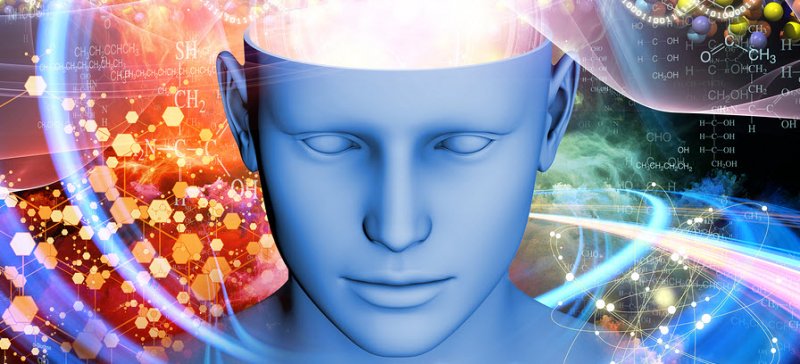Table of Contents
If you’re in recovery, will nootropics take you down that slippery slope to using again? Are nootropics addictive?
It would be a shame if you relapsed after years of not using drugs and alcohol. Especially if your intention was simply to boost brain power. And even repair some of the damage caused by those years of using.
The thing is, the more messed up you are, and the more unhappy you are with your life. Feeling normal again can feel amazing. A recovering addict can feel guilty when things seem to be going too good. As often happens when trying nootropics for the first time.
The good news is that it’s possible to optimize cognition without paying some terrible price. In this post I’ll explain in detail why nootropics are not addictive. And offer you some safe and effective alternatives to the popular smart drugs in use today.
So what qualifies me to talk about addiction and nootropics? I’ve had the misfortune of having to live with, and deal with addiction among people closest to me. The call-the-paramedics, break-the-door-down kind of addiction that is a matter of life or death.
Addiction scares me enough to give me pause with how I talk about nootropics. Being careful to weigh all the pros and cons of each nootropic supplement. And provide fair warning when something could cause problems for some people.
Nootropics vs Smart Drugs
First let’s establish exactly what I mean by the word “nootropics”.
A search for nootropics and addiction will turn up references on the first page for rehab centers. Offering their services for recovery from addiction to nootropics and smart drugs.
Or so-called mental health “authority” sites who purposely, or through sheer ignorance, either copy other websites. Or refuse to recognize the clinical evidence and established differences between a nootropic and a smart drug.
A true nootropic as defined in this post, and throughout Nootropics Expert, is based on the original definition of a nootropic. This definition was established by the person who many consider the godfather of nootropics.
Romanian psychologist and chemist Dr. Corneliu Giurgea synthesized Piracetam in 1963. And coined the term “nootropic” in 1972.[i]
Dr. Giurgea gave us a list of five criteria that a substance must have to be considered a ‘true’ nootropic.
A true nootropic:
- Enhances memory and the ability to learn
- Assists brain function under disruptive conditions such as lack of oxygen and electroconvulsive shock
- Protects the brain from chemical and physical toxins like anticholinergic drugs and barbiturates
- Increases natural cognitive processes
- Must be non-toxic to humans
The problem is, when you hear the term ‘nootropic’ used, people loosely mean “cognitive enhancer”. A substance or compound that improves memory, increases cognitive processing speed, boosts alertness, concentration and focus, or a combination of these qualities.
Smart drugs may also meet part of the definition of “cognitive enhancer”. Prescription medications like Adderall, Ritalin, Vyvanse, Modafinil, and others. But these meds fail at least 3 of the criteria that Dr. Giurgea established.
The last on the list, “Must be non-toxic to humans” rules smart drugs out completely. As you should too if you’re worried about, or dealing with addiction and recovery.
Nootropics and Tolerance
In pharmacology, tolerance describes the decrease of loss of effectiveness or response to a drug or nootropic. Typically, due to recent or prolonged exposure to that substance.
Tolerance also includes the need for increasing the dose, or number of doses of a drug or nootropic over time to maintain the same effect.
But tolerance is not addiction by definition. Cycling is often used by neurohackers to counteract tolerance. An example of cycling is using a nootropic for 5 days, taking a 2-day break from using it, and resuming use for another 5-days.
Not cycling to avoid tolerance, or simply increasing the size of dose or number of doses is just ignorance. Or lack of maturity. And not addiction. Yes, it could be, and often is dangerous. But it’s not addiction.
Nootropics and Psychological Addiction
Now we enter a rather gray area of the definition of addiction and nootropics.
It is unfair by any stretch to call it addiction if you have learning disabilities, or are dealing with age-related cognitive decline. And you find yourself doing better than you have for a long time thanks to nootropics.
You feel you can’t live your best without nootropics. You insist you need nootropics.
This is not addiction in my opinion. And some psychologists agree with my assessment. Dr. Adi Jaffe in an article in Psychology Today stated, “There’s no such thing as a purely psychological addiction”.[ii]
I find that those who bring up, or insist that someone is ‘addicted’ to using a particular nootropic supplement. Often comes from an addict or recovering addict. Or someone in the business of making money off of addicts.
But before you label me naïve, there is admittedly an overlap between brain regions involved in processing natural rewards and drug abuse. “Behavioral” addictions have become increasingly documented in clinical settings. [iii]
Here we’re talking about compulsive activities such as eating, exercising, sex, shopping and gambling. And like drug or alcohol addiction, non-drug addiction symptoms include craving, impaired control over behavior, tolerance, withdrawal, and high rates of relapse.[iv]
However, very few nootropics reviewed here on Nootropics Expert result in an immediate-type of highly noticeable benefit. Nothing will give you the kind of reward you get from using alcohol, cocaine, meth or other popular recreational drug.
It’s highly unlikely that you’ll lose the house or your job by using a nootropic. Even at higher than recommended doses. There isn’t that strong, uncontrollable desire to get your next “fix”.
If you stick with using nootropics, you may end up in a bigger house. Or a better job.
But using higher than recommended doses, or combining nootropics with certain prescription meds could be dangerous. And even life-threatening in some instances. Please carefully read through every review on Nootropics Expert before trying something new.
Nootropics and Withdrawal
So what happens when you stop using one of these cognitive enhancers we call nootropics?
Recall our definition of what qualifies as a nootropic. These supplements are overall considered non-toxic and very safe. They do not sport any addictive qualities. And some even offer long-term benefits to your brain after you discontinue use.
Very, very few nootropic supplements result in physical withdrawal symptoms from discontinuing their use. The only ones that come to mind are Phenibut. And a very few report that Sulbutiamine may be addictive.
Some worry that stopping use of a nootropic could result in a decline in cognitive ability. That you’ll feel ‘dumber’ when you stop taking your nootropic stack.
Experienced neurohackers will verify that stopping the use of nootropics means your brain may return to your ‘base-line’. So if you were dealing with brain fog, slow thinking, depression, or anxiety before you started using nootropics. Your new ‘normal’ will make going back to living without nootropics an unpleasant experience.
But the human brain is very adaptable. You’ll quickly become accustomed to living with less than stellar cognitive abilities. And life will go on.
Smart Drugs and Addiction
In the “Nootropics vs Smart Drugs” section earlier I pointed out my disdain for those who insist on using the terms nootropics and smart drugs interchangeably.
Admittedly, this may display a lack of maturity on my part. But the stark difference between the two categories of cognitive enhancers is especially critical to the recovering addict.
Nootropics are defined as natural or synthetic compounds that enhance learning and memory, assist brain function under conditions of disruption, protect the brain from chemicals and toxins, increase cognitive processes and are non-toxic.
Smart drugs are medications prescribed to treat ADHD, narcolepsy, and dementia. The problem for the recovering addict is using any of these drugs off-label for cognitive enhancement.
The smart drugs I’m referring to include Adderall, Concerta, Donepezil, Focalin, Modafinil, and Ritalin among others. These drugs have become increasingly popular with students and some executives to increase concentration, focus, learning, and memory.
The problem for addicts is the high addictive potential from using these drugs. In fact, the addictive potential is so high that the United States DEA classifies these drugs in the same category as cocaine and meth.
If you are a sober addict, or realize you have a substance abuse problem, you cannot touch any medication that creates euphoria, or has any kind of abuse potential.
The narcolepsy drug Modafinil may be the only exception to this rule. A review of the most recent Modafinil studies suggest that it has positive effects in healthy people. Including enhancing attention, improving learning and memory, and increasing fluid intelligence. With minimal effects on mood.
The report went on to say that Modafinil appeared to be safe to take in the short term. With few side effects and no addictive qualities.[v] But researchers at Harvard and Oxford Universities admit that they have not examined Modafinil’s use over the long term.
Is the use of Modafinil where you draw the line if you’re in recovery? It seems to me from someone who has witnessed addiction first hand that you’re getting into a gray area. And it would be a shame to be taking something that you’ll end up feeling guilty about.
We have much safer alternatives to any smart drug with nootropics. For example, many neurohackers report that Forskolin with Artichoke Extract improves mood. This combo motivates you to want to learn, and to get things done. Some say it works as good as Modafinil.
Non-Addictive Alternatives to Smart Drugs
Nootropics have proven over the last few decades to be something that you do not need to feel guilty about using for cognitive enhancement. So if you’re in recovery, you can feel confident that using nootropics are OK.
Here are some suggested non-addictive alternatives to smart drugs.
- Mucuna Pruriens (L-Dopa) – Mucuna works as an antioxidant and heavy metal chelator, improves memory & cognition, reduces depression and boosts libido. L-Dopa is also the precursor to dopamine. Suggested dosage of Mucuna Pruriens is 250 – 500 mg per day.
- N-Acetyl L-Cysteine (NAC) – is the N-acetyl form of the naturally occurring amino acid L-Cysteine. NAC regulates the amount of glutamate in your brain. Glutamate is a neurotransmitter that is responsible for sending signals between neurons in the brain. This plays an important role in learning and forming memories.
Neurohackers report that using NAC reduces brain fog, improves memory, attention and concentration, reduces anxiety, depression and irritability, and boosts energy levels. The ideal study nootropic, and a great non-addictive alternative to smart drugs.
- N-Acetyl L-Tyrosine (NALT) – NALT is an amino acid that is a necessary precursor for dopamine, norepinephrine and epinephrine. As your dopamine levels increase, you’re better able to concentrate, organize your thoughts, and stay productive.
In one study with 85 young people aged 4 – 18 years, researchers used NALT and 5-HTP as the precursors for dopamine and serotonin. They found that these precursors yielded similar results to Strattera and Ritalin. And “the amino acid protocol may be equal in efficacy to potent, pharmaceutical ADHD medications”.[vi]
- Oxiracetam – This nootropic from the racetam-family is more potent than Piracetam. It improves cognition, concentration, focus, memory and recall.
And because Oxiracetam modulates AMPA-receptors in your brain, it provides a stimulant effect by influencing these glutamate receptors. Some even compare it to Modafinil.
- Phenylpiracetam – This water-soluble nootropic in the racetam-family of nootropics is known for its stimulatory effects. It increases the density of acetylcholine (ACh), NMDA, GABA and dopamine receptors in the brain. More receptors mean more binding sites for neurotransmitters that affect memory formation, cognition, sleep, mood and motivation.
Phenylpiracetam has been shown in clinical studies to affect Alpha and Beta brain waves. And like Ritalin or Adderall, this nootropic increases the effectiveness of dopamine in your brain. Increasing alertness, decision-making capability, cognition and motivation.
- Phosphatidylserine (PS) – PS is a phospholipid component of the membrane encasing every one of your brain cells. It maintains the fluidity and permeability of brain cells. Allowing for the efficient transfer of proteins, enzymes, nutrients, oxygen and glucose into and out of each cell.
Researchers in Japan conducted a randomized, double-blind, placebo controlled trial with 36 ADHD children aged 4 – 14 years. The kids received 200 mg of PS or a placebo daily for 2 months. The team recorded the children’s ADHD symptoms, short-term and working memory, and mental performance.
The researchers found that Phosphatidylserine significantly improved ADHD symptoms and short-term memory. ADHD symptoms that were reduced included inattention, short-term memory problems, and impulsivity. The placebo group saw no improvement during the trial.[vii]
This list of non-addictive alternatives to smart drugs is just a small sample of what’s possible with nootropics.
Spend some time here on Nootropics Expert and search for “ADHD”, “Ritalin”, “Adderall”, and “Modafinil” and you’ll have access to literally dozens of safe nootropic alternatives for enhanced cognition.
Just Say “No” to Smart Drugs
The ‘unauthorized’ or off-label use of prescription ADHD medications like Adderall and Ritalin, and the narcolepsy drug Modafinil is common among high school and university students.
Nearly 20% of Ivy League college students reported using prescription stimulants while studying.[viii] But the use of smart drugs does not stop at graduation.
It’s often unspoken, but common knowledge that bankers, doctors, lawyers, other professionals, and even the world’s military personnel are using smart drugs to stay competitive and perform better on the job.[ix]
I do not believe this trend is going to decrease any time soon. Which is one of the reasons I’m on a mission to spread the knowledge of nootropics as a safe alternative to smart drugs. As are many of my colleagues through blog posts, and threads on reddit and LongeCity.
You do not have to risk taking something to enhance cognition that you’ll feel guilty about. And if you’re in recovery or feel you have a problem with addiction, it would be a shame if you relapsed. Regardless of your good intentions.
Nootropics are a safe and proven alternative to every smart drug on the market. Choose wisely.









Join The Discussion - 4 comments
Patricia
September 16, 2023
Modern-warrior has a product called Ready which has several nootropics but one, tianeptine sodium which is coaxial, a tricyclic. Not approved in the USA
What are your thought about taking it? Also the product Accelerator Lean?
How safe do you feel they are?
David Tomen
October 14, 2023
Patricia, I have not researched either one. And I do not review Smart Drugs like Tianeptine.
Ross Dorrian
November 14, 2018
Hi I’m a recovery hard drug user I started taking phenebut I take 2 grams every other day and always have the same pleasurably effect I have been doing this for about 6 month as an addict I feel in control as I can skip a day and don’t crave it I suffer from depression and anxiety but this substance helps better than benzodiazepines do you think this is ok to continue
David Tomen
November 15, 2018
Ross, that decision is entirely up to you. I’ve had up-close, personal experience with recovery with family and know what it’s like. But ultimately, I cannot advise you one way or the other because it’s all about personal responsibility. Just please be careful. In my opinion, Phenibut and someone in recovery is dangerous territory.